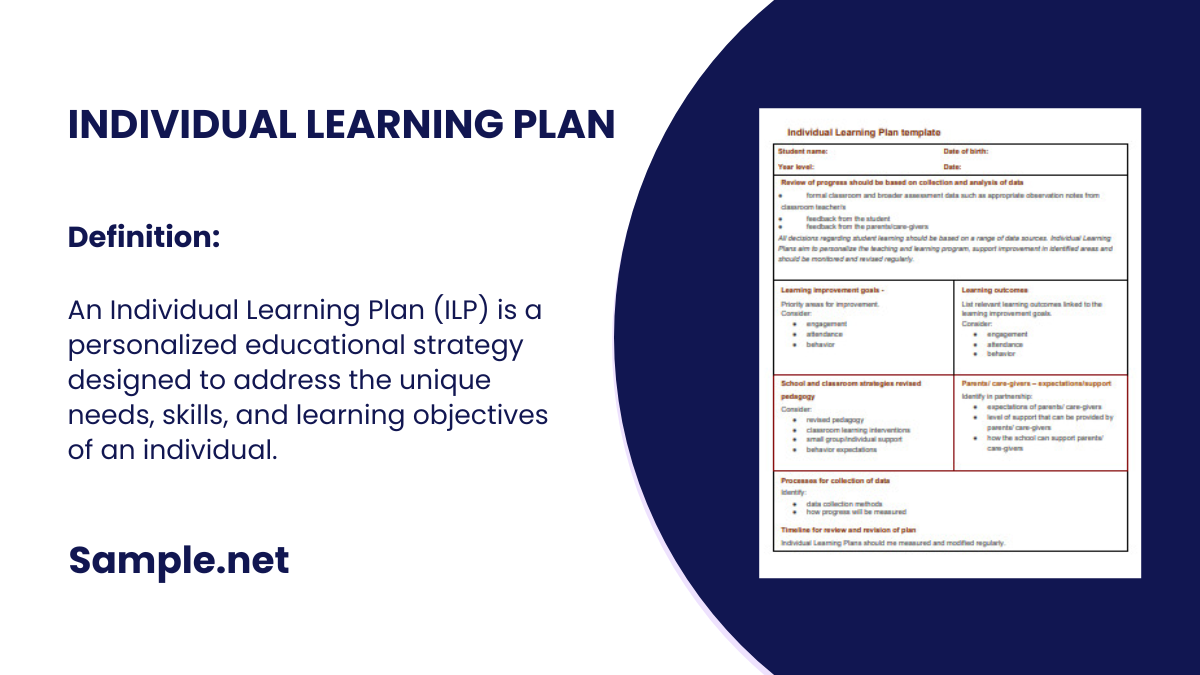An Individual Learning Plan (ILP) is a personalized educational strategy designed to address the unique needs, skills, and learning objectives of an individual. It serves as a roadmap for…
continue reading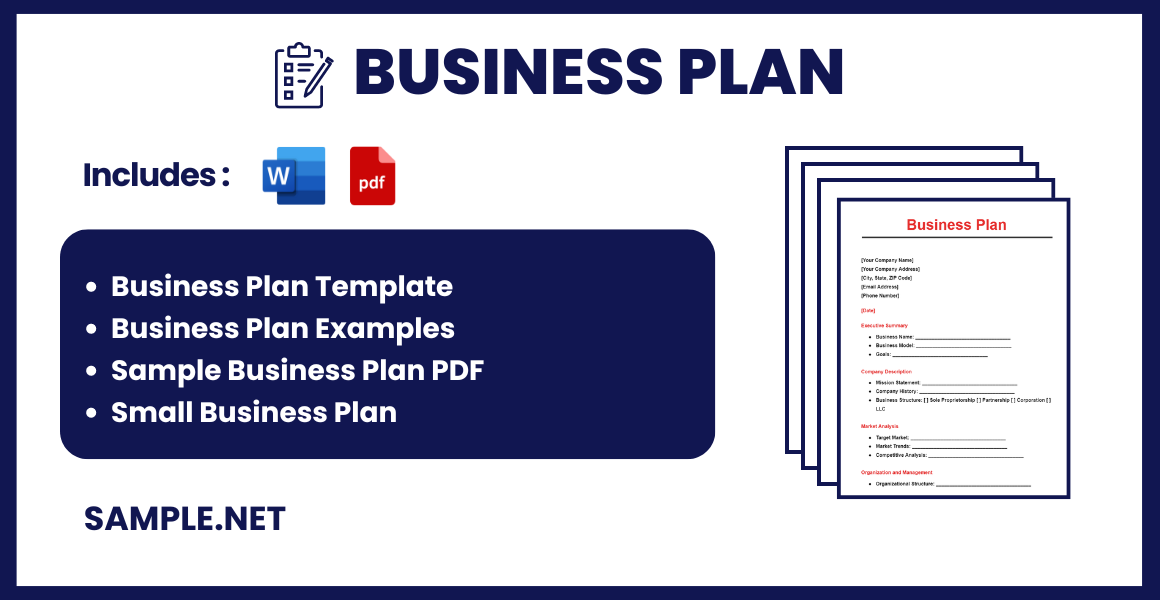
Business Plan Format
[Your Company Name]
[Your Company Address]
[City, State, ZIP Code]
[Email Address]
[Phone Number]
[Date]
Executive Summary
- Business Name: [Your Business Name]
- Business Model: [Brief description]
- Goals: [Short-term and long-term goals]
Company Description
- Mission Statement: [Mission statement]
- Company History: [Brief history]
- Business Structure: [LLC, Corporation, etc.]
Market Analysis
- Target Market: [Description]
- Market Trends: [Analysis]
- Competitive Analysis: [Overview of competitors]
Organization and Management
- Organizational Structure: [Description]
- Management Team: [Details of key team members]
Products and Services
- Product/Service 1: [Description]
- Product/Service 2: [Description]
Marketing and Sales Strategy
- Marketing Plan: [Overview]
- Sales Strategy: [Description]
Financial Projections
- Revenue Model: [Description]
- Projected Income: [Figures]
- Funding Requirements: [Details]
Appendices
- Supporting Documents: [List of documents]
Business Plan Samples
-
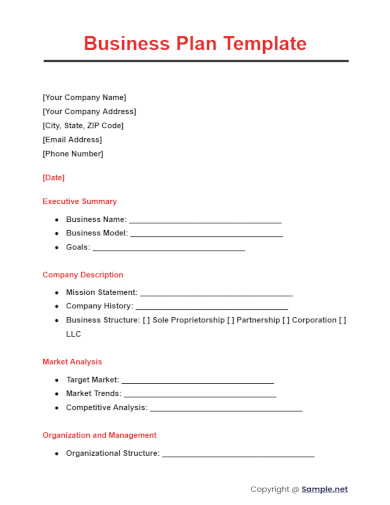
Business Plan Template
download now -
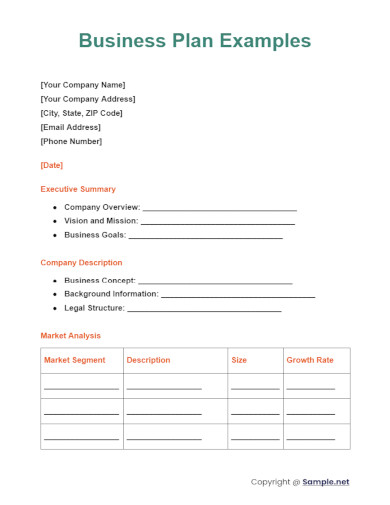
Business Plan Examples
download now -
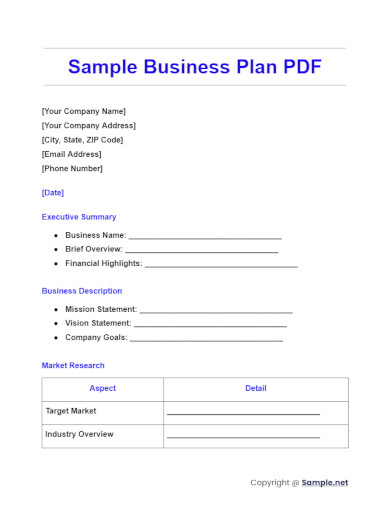
Sample Business Plan PDF
download now -
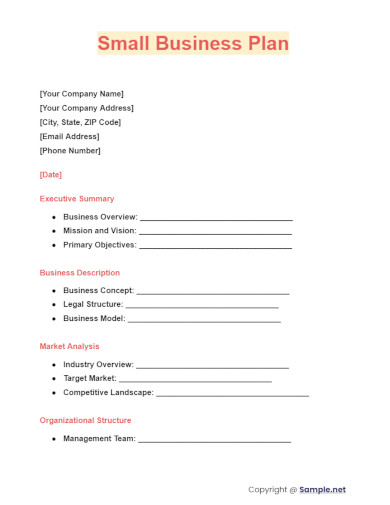
Small Business Plan
download now -
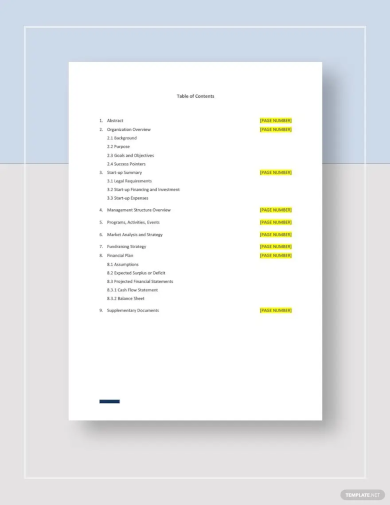
Nonprofit Business Plan Template
download now -
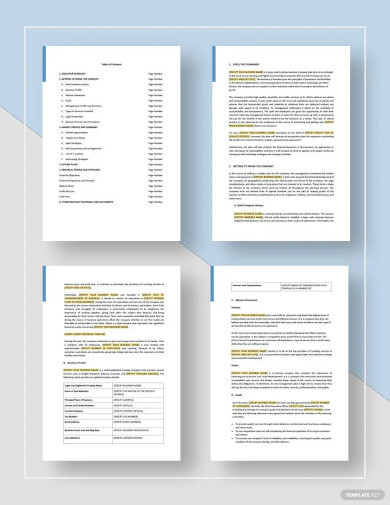
Trucking Business Plan Template
download now -

Business Plan Template
download now -

Business Plan Table of Contents Template
download now -

Startup Business Plan Template
download now -

Rental Property Business Plan Template
download now -
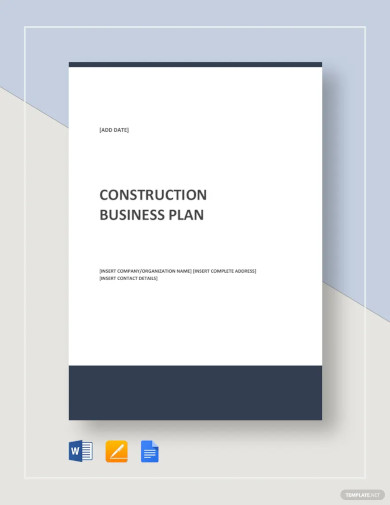
Construction Business Plan Template
download now -

Sample Construction Business Plan Template
download now -

Restaurant Business Plan Template
download now -

Freight Trucking Business Plan Template
download now -
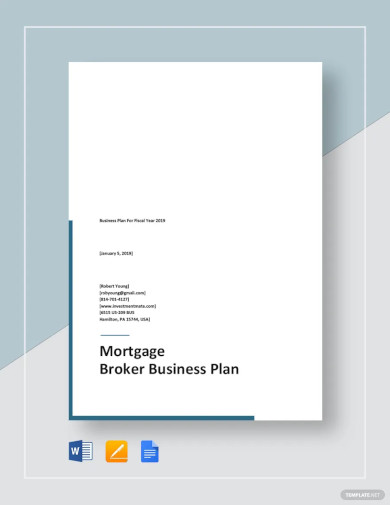
Mortgage Broker Business Plan Template
download now -

Simple Business Plan Template
download now -
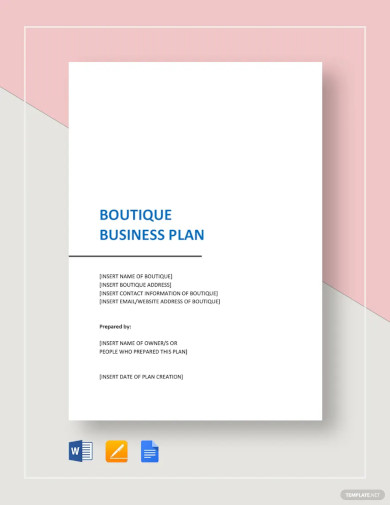
Boutique Business Plan Template
download now -

Recruitment/Staffing Agency Business Plan Template
download now -

Business Plan Proposal Template
download now -

Spa Business Plan Template
download now -
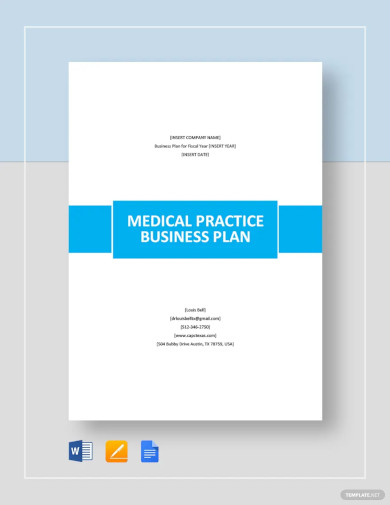
Medical Practice Business Plan Template
download now -

Farm Business Plan Template
download now -

Strategic Business Plan Template
download now -
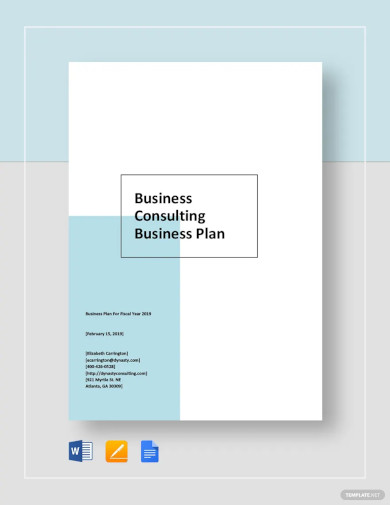
Business Consulting Business Plan Template
download now -

Restaurant Business Plan Template
download now -

General Business Plan Template
download now -

Editable Startup Business Plan Template
download now -
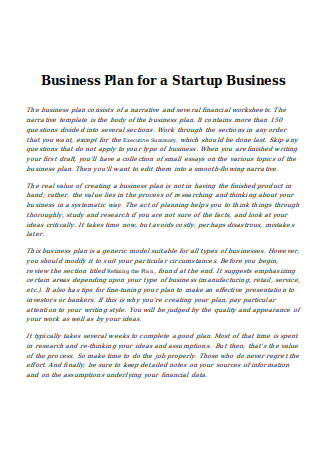
Business Plan for a Startup Business
-
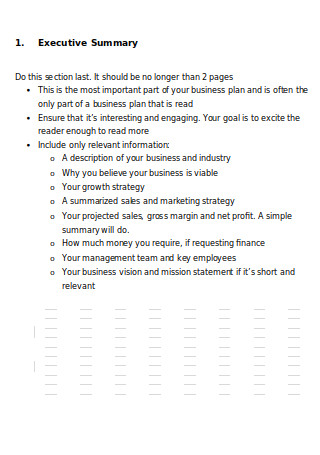
Simple Business Plan
-
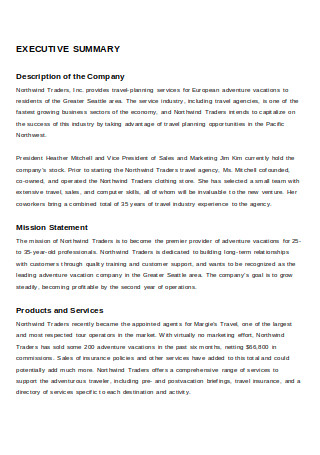
Sample Business Plan
-
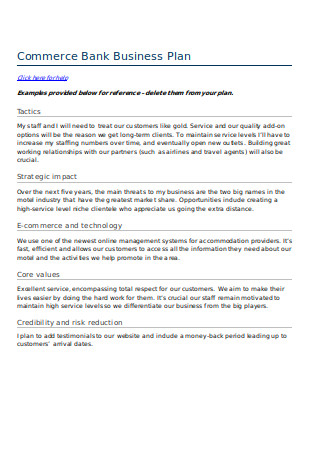
Commerce Bank Business Plan
-
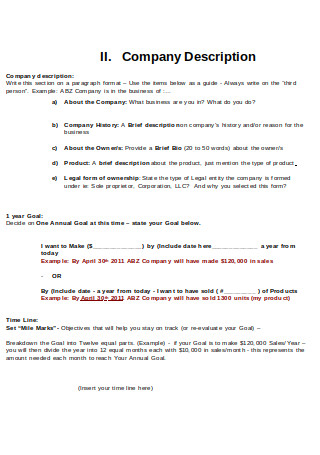
Business Idea Plan
-
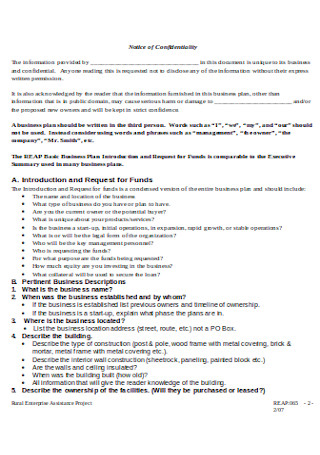
Basic Business Plan
-
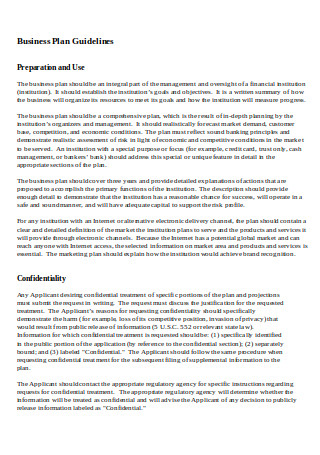
Business Plan Preparation
-
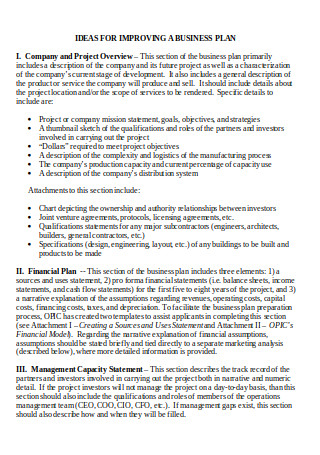
Ideas for Improving Business Plan
-
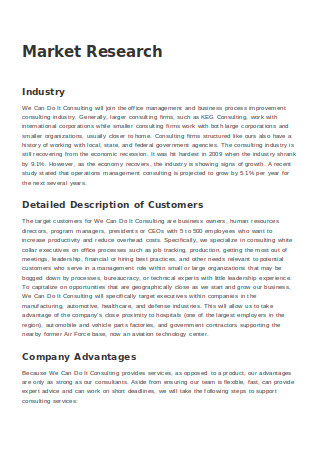
Sample Business Plan Format
-
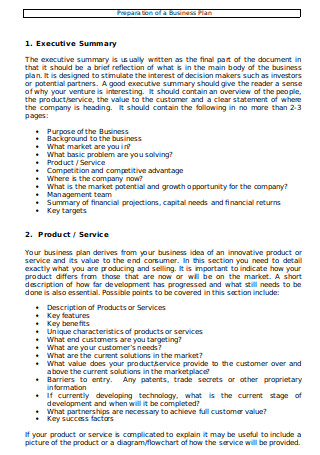
Preparation of a Business Plan
-
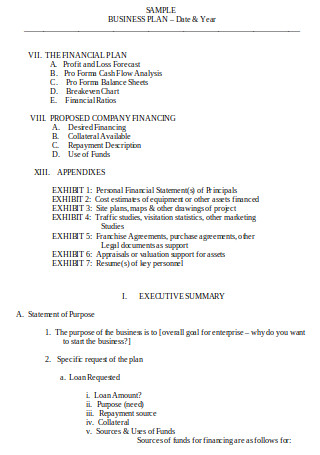
Sample Business Plan in DOC
-
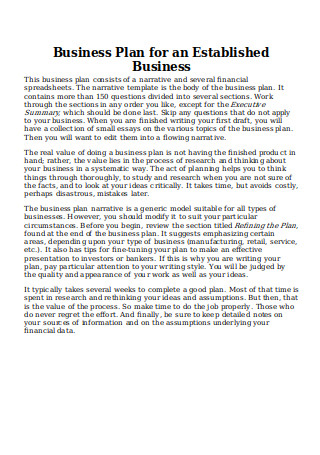
Business Plan for Established Business
-
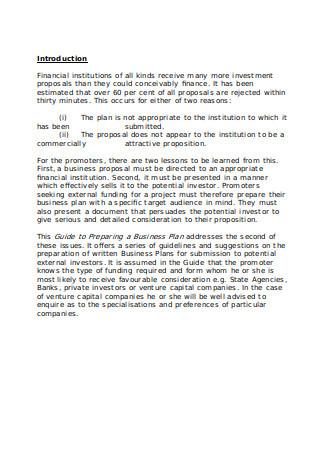
Sample Enterprise Business Plan
-
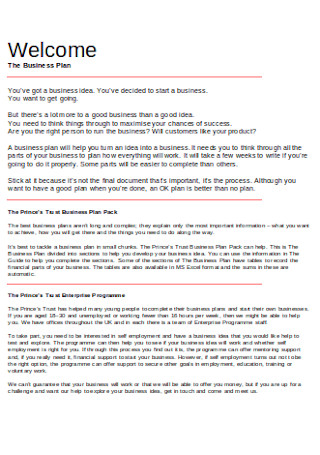
Formal Sample Business Plan
-
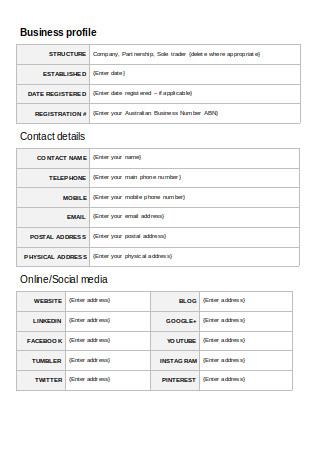
Partnership or Sole Trader Business Plan
-
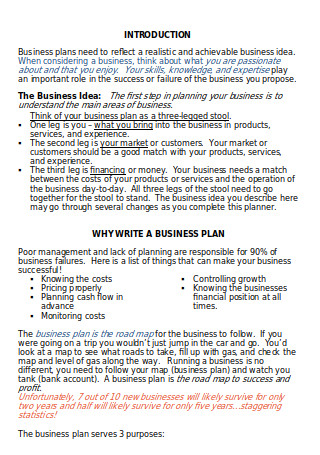
Business Plan Outline
-
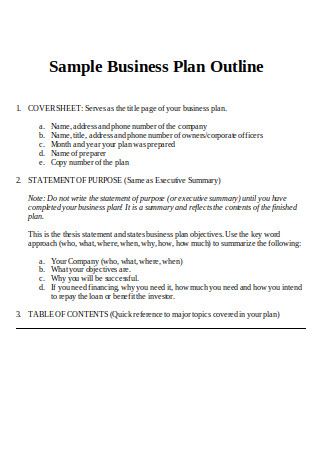
Sample Business Plan Outline
-
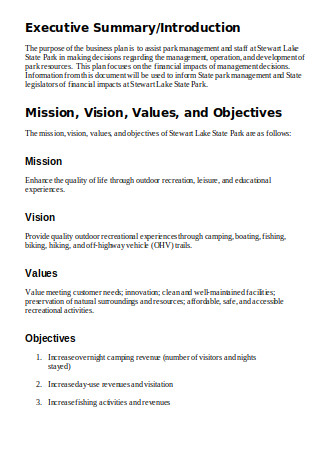
Printable Business Plan
-
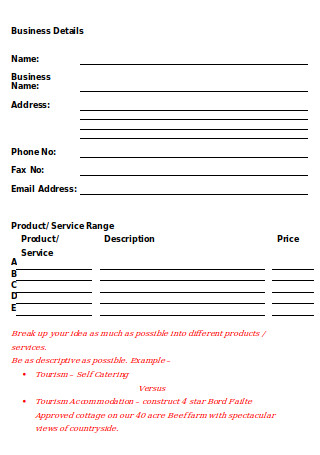
Sample Entrepreneur Plan
-
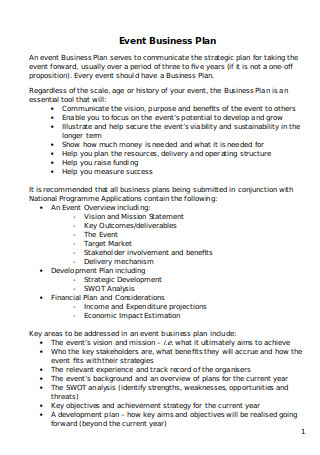
Event Business Plan Sample
-
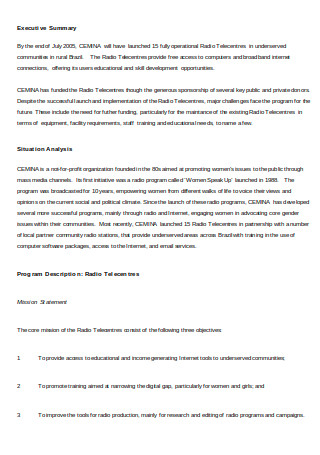
Business Plan for Radio-Tele Centres
-
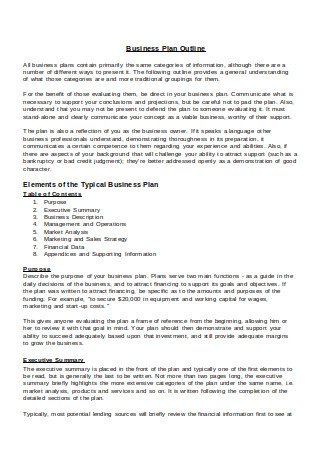
Business Plan Outline Format
-
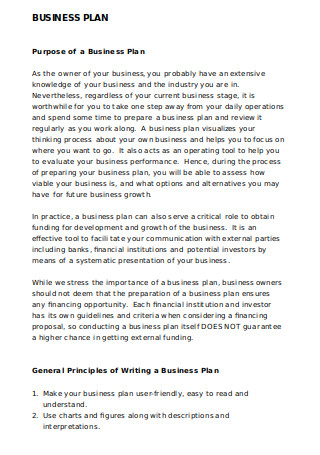
Basic Business Plan Sample
-
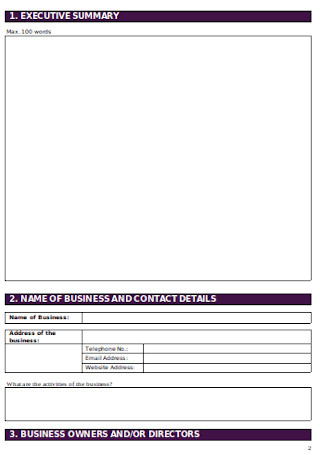
Printable Business Plan Sample
-
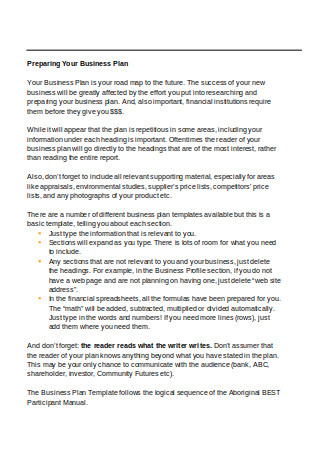
Standard Business Plan
-
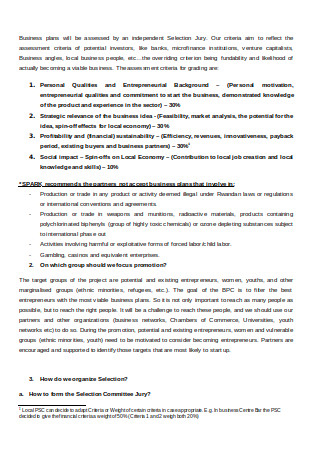
Business Plan Competition
-
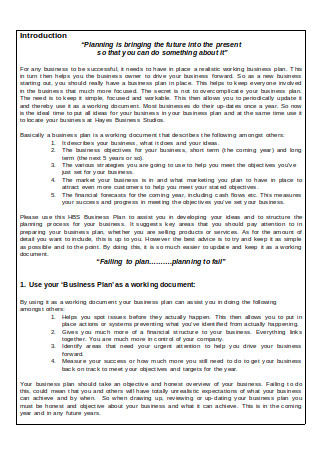
Sample Business Plans
-
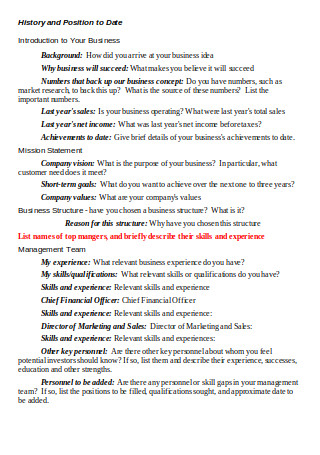
Business Plan for President/CEO
-

Irrigation Business Plan
-
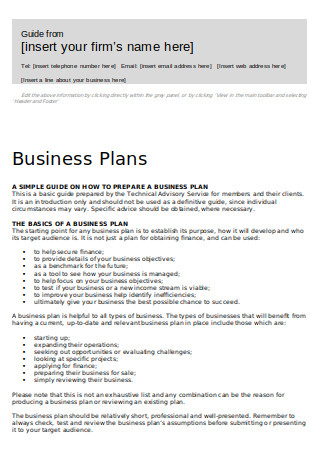
Basics of A Business Plan
-
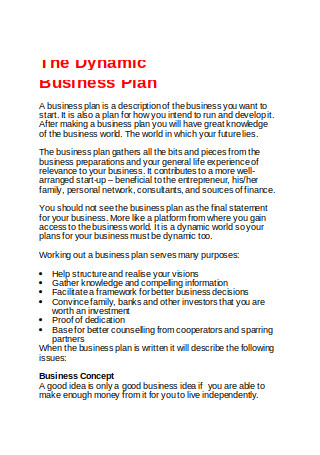
The Dynamic Business Plan
-
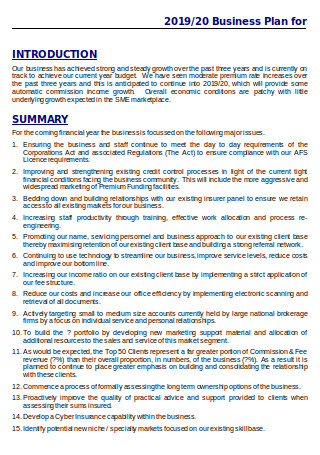
Broker Business Plan
-
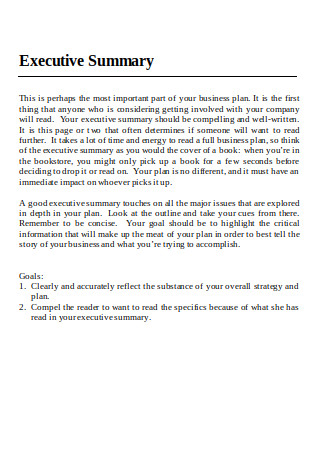
Oxygen Business Plan Outline
-
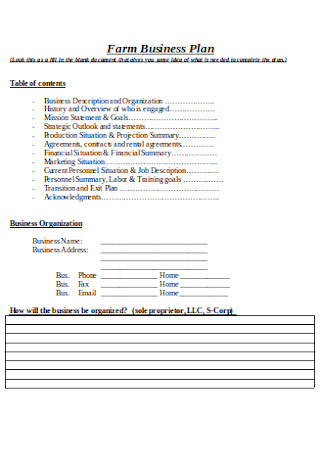
Farm Business Plan Sample
-
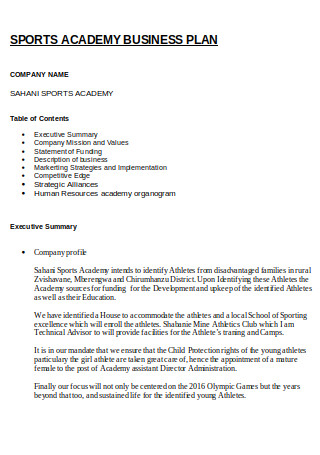
Sports Academy Business Plan
-
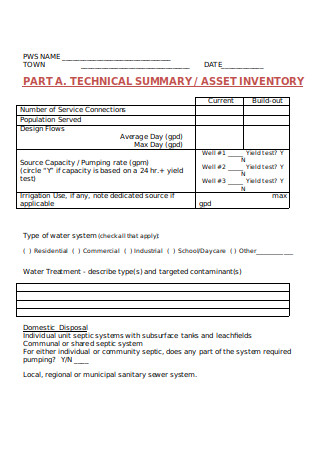
Business Plan for Public Water System
-
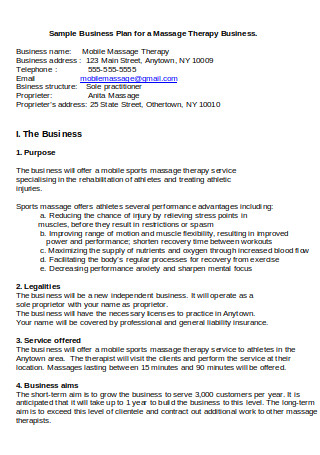
Sample Business Plan for a Massage Therapy
-
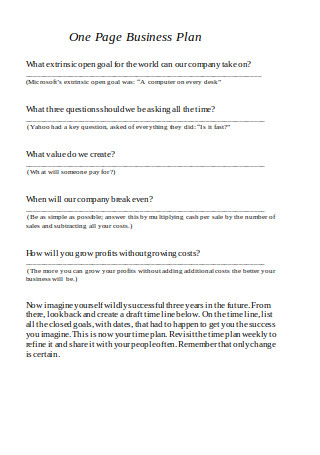
One Page Business Plan
-
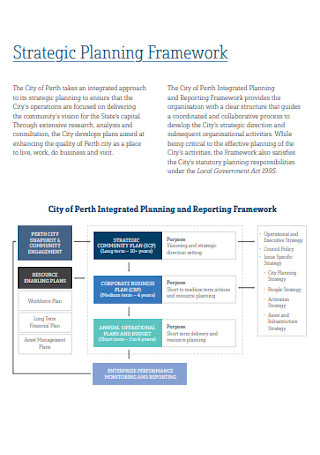
Corporate Business Plan
-

Successful Business Plan
-
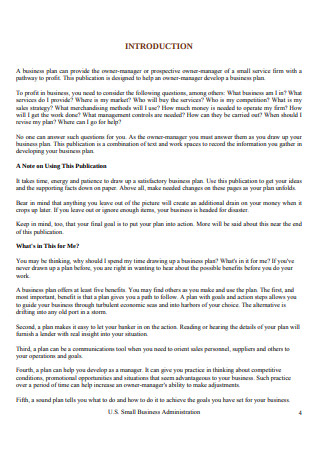
Business Plan for Small Service Firm
-
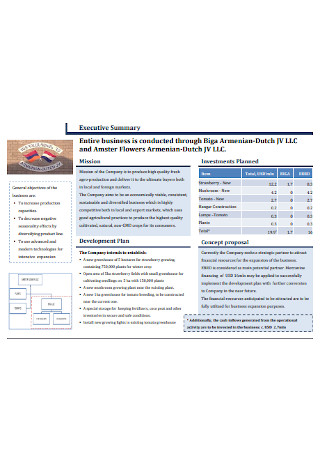
Expansion Business Plan
-
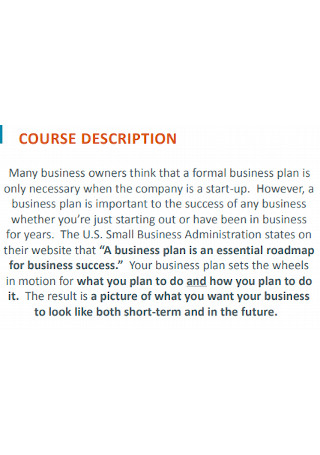
Business Plan Basics
-

Foundational Business Plan
-

Strategic Business Plan
-
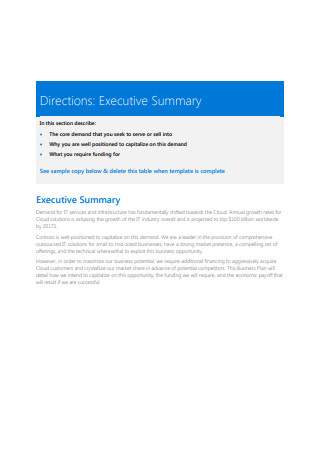
Sample Cloud Business Plan
-
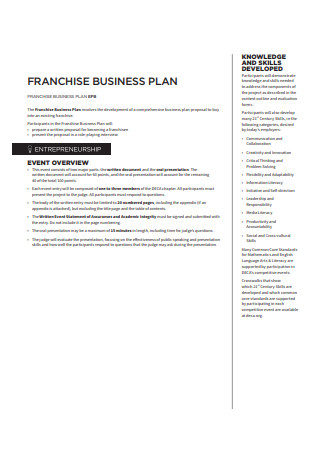
Franchise Business Plan
-
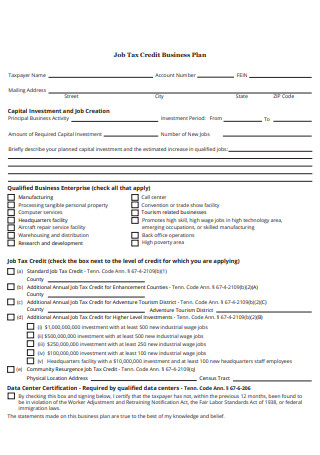
Job Tax Credit Business Plan
-
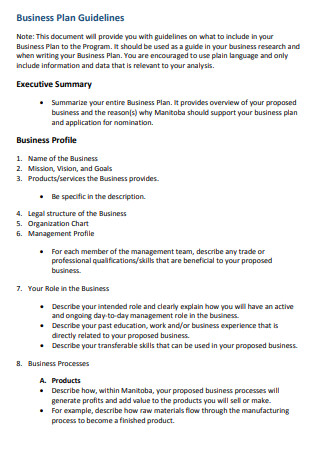
Entrepreneur Pathway Business Plan
-
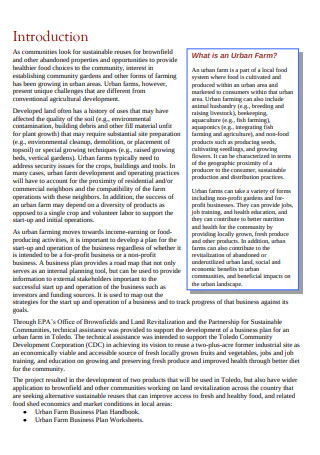
Urban Farm Business Plan
-

Enterprise Business Plan Sample
-
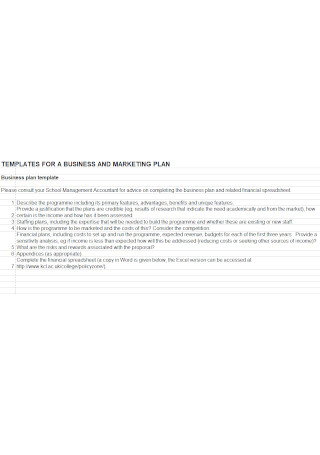
Business and Marketing Plan Template
download now
What Is a Business Plan?
The simplest way to define a business plan is that it’s a blueprint for your company’s future. It provides an overview of your operational and financial objectives to get your business to where you want it to be. But business plans aren’t only for startups and small-scale enterprises, as companies that wish to expand or pursue a new venture may use the plan to determine if their ideas are viable. Not only does it breed confidence in business owners, but it cultivates trust among lenders as well. Detailed business plans prove that you’re knowledgeable and serious about what you’re about to embark on to earn a lender’s approval.
“Companies that plan grow 30% faster than those that don’t plan.”
“71 percent of fast-growing companies have business plans.”
“The most successful entrepreneurs were those that wrote their business plan between 6 and 12 months after deciding to start a business, increasing the probability of venture viability success by 8%.” (Source: Harvard Business Review)
Although these plans are created at the initial stages of the undertaking, they still need to be reviewed from time to time. It’s important to update your business plan periodically to make the necessary changes as the company continues to evolve. Keep in mind that the objectives that were set two years ago may not be as relevant to the current state of your business.
Types of Business Plans
Business plans guide owners, managers, and investors in their path toward success. They help clarify the different aspects of a business to help the management make data-driven decisions for any opportunities or shortcomings that arise. But the common misconception about a business plan is that you’ll only ever need one to suit all your business needs. The truth is, companies and organizations often need new and different types of business plans as they continue to grow in the industry.
How to Write a Business Plan
Every business needs to have a written plan in place if it wants to flourish in the industry it is in. Whether it’s to draw new customers or provide your team with direction, a business plan plays a vital role in the success of your organization. However, getting started is probably the most difficult part. It’s important to know how to write an effective business plan to make sure it speaks volumes with your target audience.
Step 1: Conduct extensive research on the subject.
To write the perfect business plan, you need to have a good understanding of your company, your product, your market, and your competitors. Experts even suggest spending more time researching, evaluating, and studying as opposed to actually writing your ideas on paper. It’s your responsibility to gather as much information as you can about the business and industry you are entering to steer clear of loopholes that could have been avoided.
Step 2: Determine your purpose.
A business plan can serve several different purposes, depending on what you aim to accomplish. One way to meet the objectives of your business plan is to keep it targeted. If you want to attract investors to support your business ideas, you need to write a plan that expresses these intentions. Defining your exact purpose will make it easy for you to tailor your content according to how you expect readers to respond.
Step 3: Create a company profile.
Your company profile pertains to the history of the organization, the products or services that are offered, the targeted audience, the problem to be solved, and the unique selling proposition that differentiates the business from its competitors. You can find most of this information on the About page of a website, as it intends to attract prospective customers and talents to the company. In a business plan, your profile introduces your organization to investors and clients in a way that puts you under a good light. People want to associate themselves with entities that they could trust, your profile does just that by building integrity through words.
Step 4: Have a marketing plan in place.
A simple business plan always comes with a strategic and aggressive marketing plan. After all, it would be impossible for your company to generate a return on investment without proper marketing to create conversions. It should focus on the ‘what’ and the ‘why’ of your marketing tactics to discover what’s practical and what’s not. Meeting your marketing objectives will eventually garner promising outcomes for your overall business goals.
Step 5: Adapt to your audience.
Business plans usually cater to a diverse audience. But even then, note that each type of reader does have a specific interest that they look for in a plan. If you’re familiar with these interests, you can take them into account when writing a business plan for that particular audience. The best business plans are made flexible enough to adapt to their readers. It is often kept simple with the limited use of technical jargon to ensure that ideas are communicated effectively for one to grasp.
Step 6: Explain your intent.
Even though business plans carry a professional tone for formality reasons, it doesn’t mean you can’t evoke an emotional response from your readers. The only way to connect with your audience is if you learn to put their best interests in mind. Your plans need to show that you care about meeting certain goals and that you’re dedicated to pursuing them. That way, investors, customers, and employees get a better view of the problems you’re trying to solve, the values you uphold, and the distinctive features that make you stand out from the competition. You may also see Clothing Store Business Plan
The Dos and Don’ts of a Business Plan
You can find a ton of articles, journals, and websites that are dedicated to guiding new and thriving entrepreneurs on how to make a solid business plan. But it’s not enough to know the steps involved to prepare the business plan, as it’s also important to be aware of what you need to do and avoid when creating it.
The Dos
1. Do understand what you are selling.
When you offer a product or service to the market, you aren’t just selling the item itself, but its value, quality, and brand experience as well. For example, L’Oréal and Lancome are both makeup brands that sell a wide range of cosmetics to their buyers. What makes them different is how L’Oréal aims to sell money-saving products to consumers, while Lancome uses luxury and status to accompany their offers.
2. Do determine your main objective.
Your mind must be buzzing with a ton of great ideas by now. While this might seem like a good thing, one too many ideas can start complicating your vision. This will only make it difficult for investors and customers to understand what it is that you’re really trying to sell. To make things a lot less complicated, you need to determine the central objective of your company. This makes it easier to eliminate certain aspects of your business plan that don’t support that ambition.
3. Do prove your knowledge in market demand.
With a business plan, you have to convince potential investors that your ideas are worth the money. A good understanding of your micro-economic environment will indicate the growing demand for your product or service offer. If you’re pitching an idea that doesn’t seem promising enough to drive a profit, you could be wasting all your efforts on a lost cause. Also, be sure to consider the factors that influence the rise and fall of market demand to prove that you are capable of running a sustainable business despite the circumstance.
4. Do tackle the risks that come with it.
There will always be risks, and even your backer knows that. But what concerns most investors is your ability to tackle these risks head-on. Risks are an inevitable part of any business venture, and although it’s too early to eliminate them, you can elevate your plans to mitigate these dangers wherever possible. Remember to point out counter-balancing opportunities that are likely to happen if you identify these risks and address them early on.
5. Do focus on future success and profits.
It’s easy to see why your plans would work in the present, but what happens down the road? Your company won’t be able to continue its operations once your capital runs out and you no longer have the funds to support it. When creating a business plan, it’s essential to think ahead. The plans you make now can potentially affect what happens to your business in the long run. Taking the bandaid approach to settle long-term problems with short-term solutions is bound to lead to even more consequences in the future. You may also see Waste Management Business Plan
The Don’ts
1. Don’t forget to strategize.
You don’t want to be too ambitious with your plans. Attempting to sell your products or services to a mass audience is only a good idea if you’ve already established a name for yourself in the industry. Otherwise, you might want to start small. Focus on a specific group of people to target and start building your customer base from there. This method offers a better chance for you to sustain your business as it grows into broader markets.
2. Don’t forget who you are writing for.
A good tip for writing a business plan is to make sure it is geared toward your target audience. This means you need to write clearly and precisely enough for readers to grasp what you are trying to convey. Turn your focus on what readers will look for in your plan, which is anything relevant to the investment decision. An in-depth look into financial calculations and economic evidence may also be necessary in some cases. The business plan outline should also contain information that will explicitly answer the concerns of your audience.
3. Don’t dismiss the competition.
You might have a sharp edge against your competitors, but you’ll need more than that to impress clients and investors. Alternative offerings are a huge factor that could impact your sales numbers, so be sure to examine the facts before making a final call. See what your competitors are up to; where they excel and where they appear to fall short. Knowing the market performance of your peers will offer you a better view of where you currently stand and where you need to be at this level of the competition.
4. Don’t ignore feedback.
It won’t hurt to get a second opinion on your business plan. Comments, complaints, and ideas that others have to offer must be taken into consideration to help improve the plan’s content. It can be extremely valuable, especially when you begin to lose sight of your main objective. Discussing ideas with your peers will also open your mind to opportunities that may have been overlooked in the initial stages of the writing process.
5. Don’t expect too much from your first try.
When you set your expectations too high, you almost always end up disappointed. Starting a business is a difficult process for everyone. But if done right, it can also be a gratifying experience. While writing a business plan might as well be the most daunting part of the journey, it’s still a crucial step to building a roadmap for your ideas. You need to be realistic about the things you envision and make sure your claims are credible. The bottom line should connect you with your target demographics and give them a reason to gamble. You may also see Small Hotel Business Plan
What are the 7 steps to create a business plan?
Creating a business plan involves a structured approach to ensure all critical aspects are covered, providing a clear roadmap for success.
Steps to Create a Business Plan
- Research and Analysis: Understand your market, industry trends, and competitors.
- Define Objectives: Outline your business goals and objectives.
- Develop Strategies: Create strategies to achieve your goals.
- Financial Planning: Include financial projections, budget, and funding needs.
- Operational Plan: Detail the day-to-day operations and management structure.
- Marketing Plan: Develop a plan to attract and retain customers.
- Review and Revise: Regularly update your business plan to reflect changes. You may also see College Business Plan
Purposes of a Business Plan
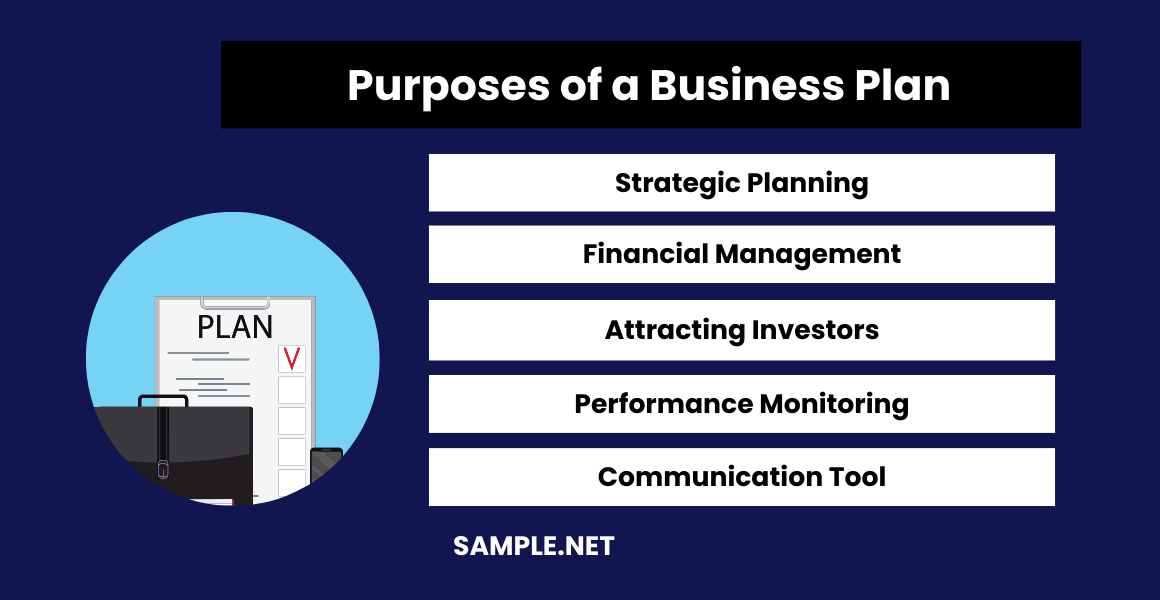
A business plan serves multiple purposes, from guiding the startup process to attracting investors and managing growth.
Key Purposes of a Business Plan
- Strategic Planning: Provides a roadmap for business development.
- Financial Management: Helps in budgeting and financial projections.
- Attracting Investors: Essential for securing funding from investors.
- Performance Monitoring: Tracks progress towards business goals.
- Communication Tool: Clearly conveys business ideas to stakeholders, similar to an Agriculture Business Plan.
What are the 7 main points in a business plan?
A business plan typically includes seven main points that cover the essential aspects of your business.
Main Points in a Business Plan
- Executive Summary: Overview of the business and its objectives.
- Business Description: Detailed information about the business.
- Market Analysis: Insights into the industry, market, and competitors.
- Organization and Management: Structure and management team.
- Product Line or Services: Description of products or services offered.
- Marketing and Sales: Strategies to attract and retain customers.
- Financial Projections: Budget, financial forecasts, and funding needs, similar to a School Business Plan.
What’s Included in Business Plan
A comprehensive business plan includes detailed sections covering all aspects of the business to ensure thorough planning and execution.
Components of a Business Plan
- Executive Summary: Brief overview of the business plan.
- Company Description: Information about the business and its mission.
- Market Analysis: Detailed analysis of the market and competition.
- Organization Structure: Management team and organizational hierarchy.
- Product/Service Line: Information about products or services offered.
- Marketing Strategy: Plans for marketing and sales.
- Financial Plan: Budget, financial projections, and funding requirements, similar to a Restaurant Business Plan.
Which 3 are elements of a business plan?
Three critical elements of a business plan provide a foundation for its structure and purpose.
Key Elements of a Business Plan
- Executive Summary: Summarizes the entire business plan.
- Market Analysis: Provides insights into market conditions and competition.
- Financial Plan: Details financial projections and funding needs, akin to an One Page Business Plan.
What are the 8 things a business plan needs?

A complete business plan includes eight essential components to ensure comprehensive coverage of all business aspects.
Essential Components of a Business Plan
- Executive Summary: Overview of the plan.
- Business Description: Detailed business information.
- Market Analysis: Industry and market insights.
- Organization and Management: Management structure.
- Product Line or Services: Details of products or services.
- Marketing and Sales: Strategies for market penetration.
- Funding Request: Financial requirements and funding sources.
- Financial Projections: Budget and financial forecasts, similar to a Boutique Business Plan.
What are the 6 P’s business plan?
The 6 P’s of business plan are crucial elements that guide the business planning process, ensuring all key areas are addressed.
The 6 P’s of Business Plan
- Purpose: Define the mission and vision.
- Products: Detail the products or services offered.
- People: Highlight the management and team structure.
- Processes: Outline the operational workflows.
- Promotion: Develop marketing and sales strategies.
- Performance: Set goals and measure progress, akin to a Fast Food Business Plan.
Is a business plan necessary?
Yes, a business plan is necessary. It provides a strategic roadmap, helps secure funding, and guides decision-making, ensuring business success, similar to a Competition Business Plan.
How long should a business plan be?
A business plan should be concise yet comprehensive, typically 20-30 pages, covering all essential aspects without overwhelming the reader, akin to a Business Action Plan.
Is it hard to write a business plan?
Writing a business plan can be challenging, requiring research, strategic thinking, and clear communication. However, using templates and guides can simplify the process, similar to a Business Plan Report.
Why do businesses need funds?
Businesses need funds for startup costs, operations, growth, and expansion. Funding ensures liquidity and helps achieve business goals, much like a Coach Business Plan outlines necessary resources.
Who usually writes business plans?
Business owners, entrepreneurs, or consultants typically write business plans. They ensure all aspects are covered, from strategy to finances, similar to drafting an HR Business Plan.
How much does it cost for someone to write a business plan?
Hiring a professional to write a business plan can cost between $1,500 to $5,000, depending on complexity and detail, similar to planning an Exit Strategy Business Plan.
How to get funding for a start-up Business Plan?
To get funding for a startup, present a strong business plan to investors, secure loans, or seek grants. Detailed planning, like a Child Care Business Plan, attracts funding.
In conclusion, a well-crafted Business Plan is essential for guiding a business towards success. Our article provides detailed samples, forms, letters, use to help you create a robust plan. Whether you need a plan for a startup or an established company, our resources offer invaluable insights. Utilize our guide to draft a comprehensive Hotel Business Plan that covers all aspects from market analysis to financial projections. Proper planning ensures your business is well-prepared to meet challenges and seize opportunities, setting a strong foundation for future growth.
